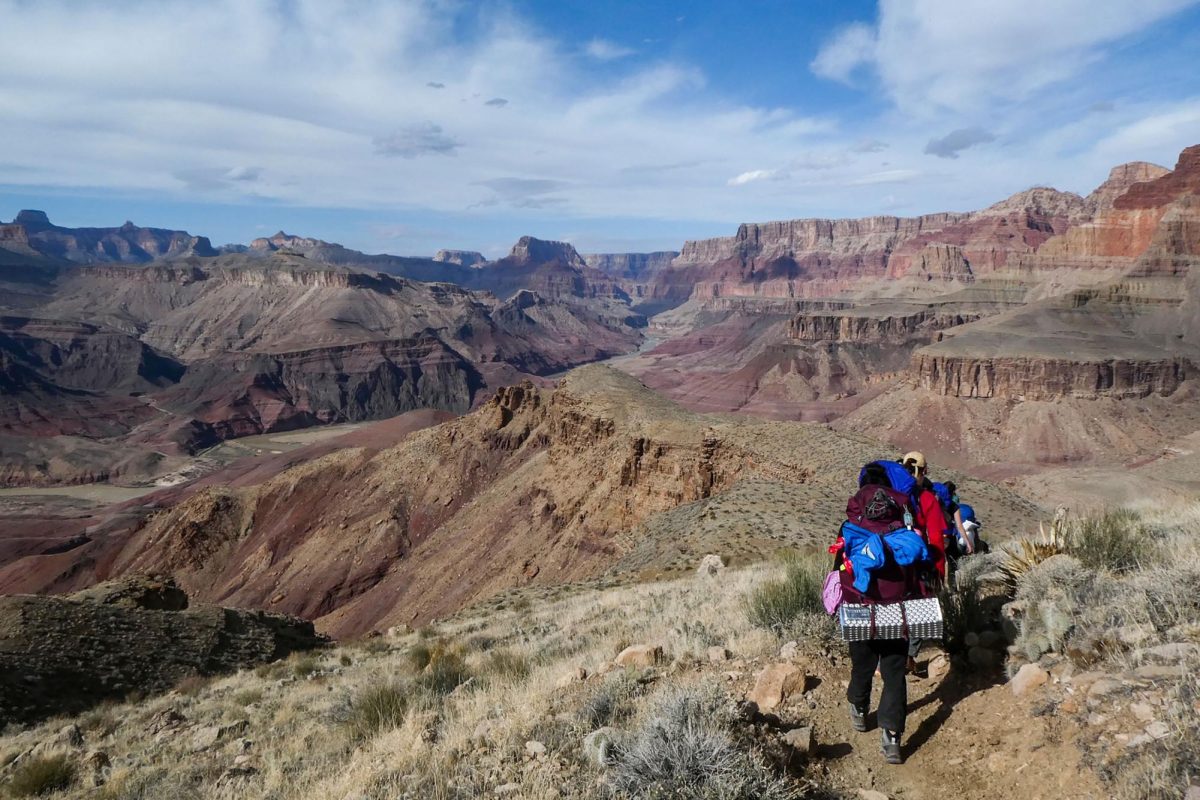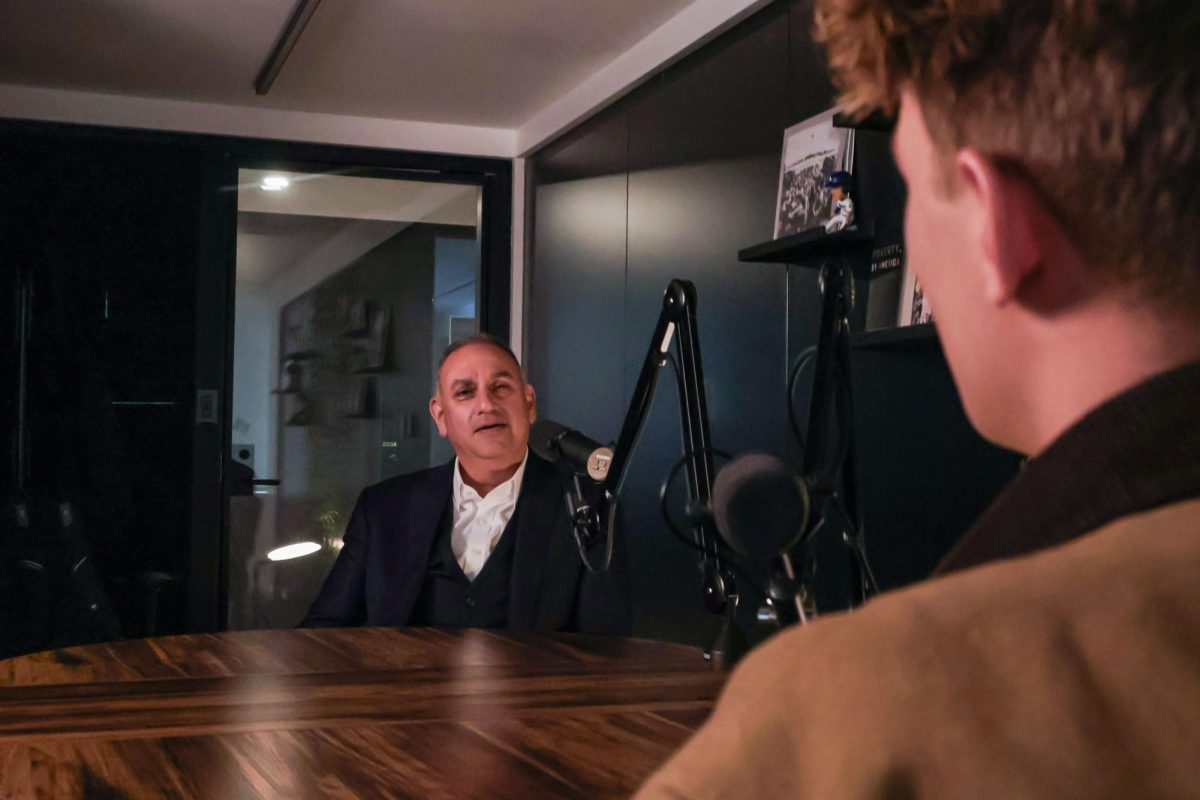Officials seek to hire an adviser for an outdoor adventure student organization that has reduced its excursions to account for shuffles in its University points of contact throughout the year.
Since the organization’s last full-time adviser left in fall 2021, leaders of GW TRAiLS have cut the number of the group’s annual trips from 60 to 70 per semester to 40 while cycling through five different interim advisers, which members said haven’t had the necessary time or experience to help direct TRAiLS’ operations. Leaders of TRAiLS said the group needs a full-time adviser with expertise in outdoor education who can also serve as an on-call University liaison during the group’s regular overnight trips to meet student demand for weekly outdoor excursions.
Officials posted a job listing for a senior outdoor education coordinator in the Lerner Health and Wellness Center on Thursday, a position that would advise TRAiLS, according to the job description. The student organization’s leaders said they have encouraged officials to hire a new adviser since the beginning of the academic year because it would alleviate some pressure from guides — student volunteers that lead other students in hiking and backpacking trips over weekends and school breaks — and help bring back the organization’s typical operating capacity.
“We just need someone who is prepared fully to take on TRAiLS as part of their responsibilities,” TRAiLS’ President Liz Hartmetz said.
Hartmetz said the group — which has more than 1,000 members on Engage and operates multiple outdoor trips each weekend — needs an adviser who can devote a minimum of 20 hours a week to the group. She said the group’s last designated adviser handled the administrative responsibilities of organizing and booking transportation for weekly trips, including overnight stays, and coordinating with third-party outfitters for TRAiLS.
“It’s a very overwhelming job,” Hartmetz said. “I think the University is getting to that point where they’re understanding the breadth of what we do, because it’s easy to be like ‘Oh, this is like a student organization.'”
She said while TRAiLS’ recent advisers have worked to support the group, they haven’t had the time to take on the breadth of the work that the organization requires, which has pushed administrative tasks onto students.
“That just led to more of a shift in responsibility toward the leadership team, especially the interns, myself and the rest of leadership,” Hartmetz said.
University spokesperson Julia Metjian said TRAiLS operates within “University lines on risk management” and that the University approves all of TRAiLS’ activities for safety. She said the University provides guides with first-aid supplies, information about medical facilities nearest to the hiking trails and trains guides “extensively” in emergency safety procedures like Wilderness First Aid and CPR.
Metjian declined to comment on why TRAiLS has undergone five adviser changes since fall 2021.
“It is crucial that every member participating in TRAiLS feels fully supported and safe at any location,” Metjian said in an email.
Senior Laurel Brodsky, a guide for TRAiLS, said the organization lost touch with the University after the last permanent adviser left and GW transitioned the group from the Office of Student Life to the Office of Campus Recreation in spring 2022. She said the interim advisers that the University assigned after the adviser’s departure had other responsibilities on top of TRAiLS while the last permanent adviser was primarily dedicated to the student organization.
“If someone had a concern, they were available to the broader guide community to reach out to for developing new ideas,” Brodsky said. “They were really there and accessible. Now, under Campus Recreation, we do a lot more of that internally because we don’t have that support from the University.”
She said the last permanent adviser would attend weekly guide meetings and received a Wilderness First Responder Certification — which allows people to make critical medical and evacuation decisions while in remote locations — to answer safety questions about potential new trips that guides wanted to put on.
“It’s a little frustrating that we’ve kind of lost this broad network of support,” Brodsky said.
Senior Leo Kehagias, a guide, the former president of TRAiLS and a Hatchet reporter, said since the departure of the last permanent adviser, the interim University liaisons have done their best to support the group, but TRAiLS is an organization that demands full-time attention that their recent advisers have not been able to accommodate with their busy schedules and other commitments.
“They had a lot of other things on their plate, right? A lot of other assignments and we were kind of just shuffled in as an extra responsibility for them,” Kehagias said.
Kehagias said TRAiLS guides are held to the same standards as University staff during trips, although they aren’t paid. He said it is unfair that unpaid guides must take on the responsibilities previously held by their adviser, like finding and booking trips. He said TRAiLS has two administrative student interns, hired and paid by the University to assist TRAiLS’ adviser, who have also picked up more logistical responsibilities since the last permanent adviser left.
“Since the guides aren’t paid, I think that you need to have somebody who you know that is their job from the University,” Kehagias said.
He said TRAiLS needs an adviser who prioritizes the work that the student organization requires in order for the group to flourish on campus.
“TRAiLS is an essential organization to helping maintain good wellness and mental health despite being stuck in the city,” Kehagias said. “So it’s essential that the organization continue as a service for GW students.”








